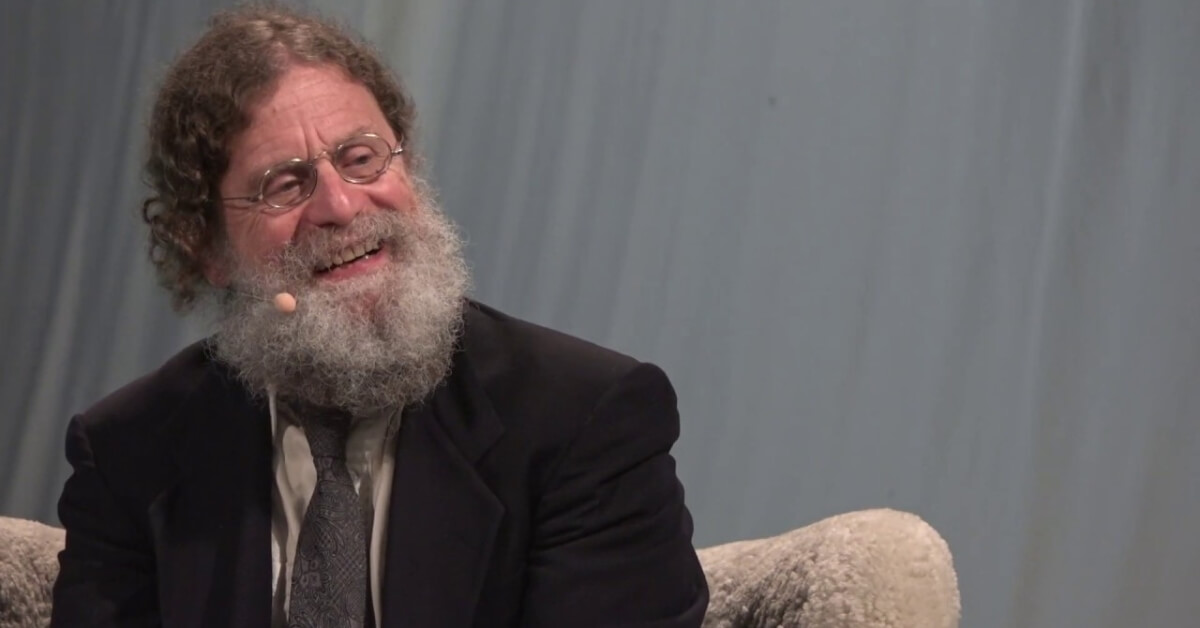Robert Sapolsky, biologist and neurologist at Stanford University, stopped believing in free will at age 13.
Shedding the concept “completely strikes at our sense of identity and autonomy,” the Stanford biologist and neuroscientist argues. It might also be liberating.
So, what does he mean by this?
Robert Sapolsky’s book “Determined: A Science of Life Without Free Will” argues against the existence of free will. He asserts that our actions are shaped by factors like hormones, biology, childhood experiences, and life circumstances. Sapolsky’s approach considers neurons, genetics, sensory stimuli, and cultural context. He contends that these interconnected influences eliminate room for free will.
Explained: Why Doesn’t Robert Sapolsky Believe in Free Will?
Robert Sapolsky, a renowned scientist, has made a name for himself through his extensive research, spanning from studying wild baboons in Kenya to delving into the intricacies of neuroscience.
His work has shed light on how complex social dynamics among baboons can lead to stress and its impact on their health.
In recent times, Sapolsky has shifted his focus to a subject that challenges our fundamental beliefs – the concept of free will.
His latest book, “Determined: A Science of Life Without Free Will,” presents a comprehensive argument against the existence of free will in any form.
According to Sapolsky, our actions are not the result of free choice but are instead shaped by hormones, biology, life circumstances, and childhood experiences.
Sapolsky’s stance is undeniably provocative, and he acknowledges that his goal is not necessarily to convince everyone but rather to encourage readers to question the deeply ingrained belief in free will that permeates our culture.
The idea of relinquishing free will, he believes, strikes at the core of our sense of identity and autonomy, making it a challenging concept to embrace.
Sapolsky highlights in an interview with New Scientist that many philosophers, known as compatibilists, attempt to reconcile the existence of free will with the deterministic nature of the universe.
They acknowledge the presence of scientific facts like atoms, molecules, and cells while still asserting the existence of free will.
Sapolsky’s approach to understanding behavior is rooted in a multi-disciplinary framework.
When analyzing human actions, he looks at a hierarchy of factors, including the role of neurons, hormonal fluctuations, sensory stimuli, neuroplasticity influenced by past experiences, genetics, and childhood development.
These elements are interconnected, creating a continuous thread of influences that extends back to our ancestors and their cultural and environmental contexts.
One of the critical insights from Sapolsky’s perspective is that all these influences form a seamless continuum, leaving no room for the insertion of free will.
Our choices and actions are not isolated events but rather the outcome of a complex interplay of biological, genetic, and environmental factors.
Sapolsky also addressed the question of why humans seem wired to believe in free will.
He suggests that self-deception may have evolved as a psychological defense mechanism to cope with the overwhelming notion that we lack free will.
When people face stress or insurmountable challenges, they often experience a distorted sense of agency as a defense mechanism.
Sapolsky emphasizes that the assumption of the absence of free will should not necessarily be seen as a bleak revelation.
While it may be disheartening for some, it can also be liberating for many others, especially those who have struggled with societal judgments and prejudices based on factors beyond their control.
Sapolsky cites obesity as an example, where individuals often face lifelong challenges and stigma due to genetic and metabolic factors.
In Sapolsky’s view, recognizing the absence of free will can be a humane and liberating perspective.
It allows us to reevaluate our judgments and assumptions about people and their actions.
Overall, Robert Sapolsky’s exploration of the concept of free will challenges long-held beliefs and invites readers to question the nature of choice and agency in our lives.
It reminds us of the continuous journey of self-discovery and the ongoing quest to unravel the mysteries of our existence.
What do you think of Robert Sapolsky’s research and theory? Does Free Will simply not exist?
Let us know whether you agree with his views or not in the comments below.

